Limitless possibilities in spectacular destinations, Balance Holidays' exceptionally curated wellbeing travel experiences bring individuals on multi-sensory journeys that enrich and awaken the heart, body and mind..

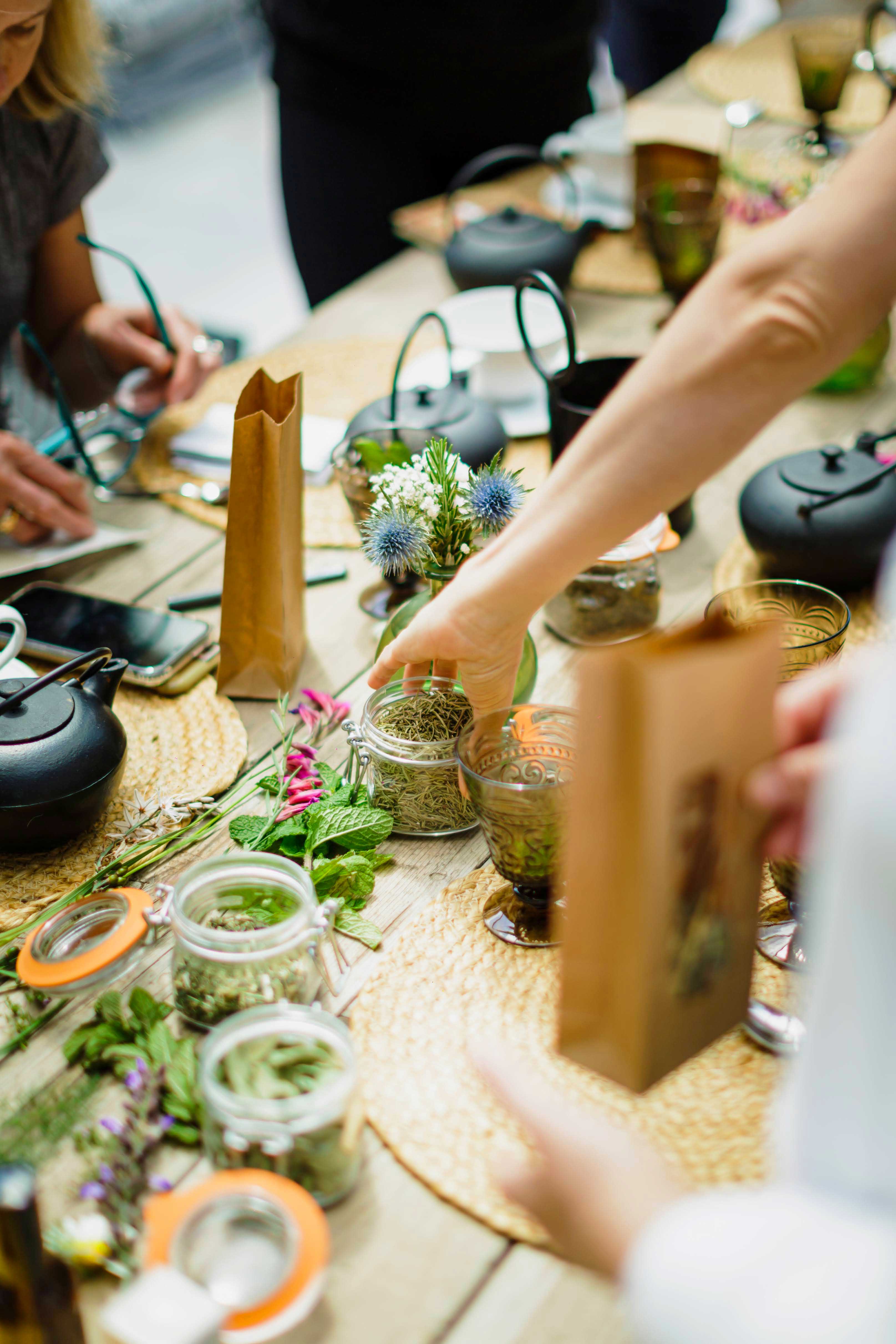
Honoured to welcome Tom and Zoe, the founders of Wunder Workshop, a functional food brand focusing on herbal remedies crafted from regenerative and organic ingredients, as guest experts on our recently concluded Elevate and Nourish Mallorca Retreat. We learned about their in-depth knowledge on the ancestral history of using medicinal plants, Ayurveda, plant-care and sourcing principles, approaches to integrating herbal plants into modern life that goes beyond ingestion and more. In this conversation, we advance the discussion to learn about how Zoe and Tom have translated their personal values into their business practices and celebrate the wisdom nature provides us.
Q: Tell us about Wunder Workshop and the vision behind the company
Zoe: Wunder Workshop really is an extension of my personal lifestyle and upbringing. So, as a conscious citizen, I have instilled all my personal values into the business. The main ones are trust and transparency. From my own curiosity, I have always wanted to know and understand the origin of things, and this is our number one priority: knowing where our main ingredients are from. Plus, supporting the health of the environment and the farmers who grow these ingredients.
Our mission is, therefore, to create a circular and holistic business that supports biodiversity and soil health. But also, to give back to the farming communities whilst educating people about the health benefits of these ancient plants and remedies—valuing this traditional wisdom.
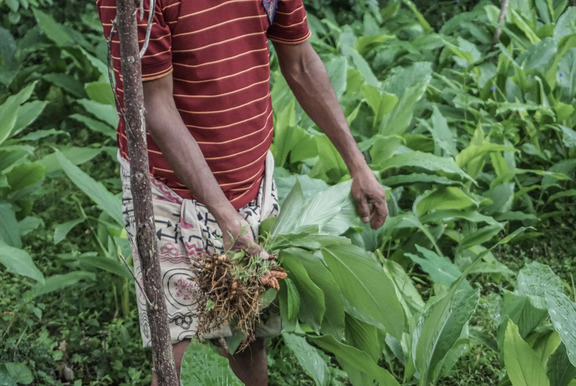
Q: How did you become interested in therapeutic herbs and plants and how have your experiences inspired Wunder Workshop?
Zoe: My biggest inspiration to start Wunder Workshop was my late mother, who had been deeply passionate about health and wellbeing since her early twenties, so by the time I was born she had nearly 20 years of experience. She was also a holistic therapist and a naturopath, so this meant I was surrounded by interesting books about traditional medicine, the power of plants, and how to create all kinds of natural remedies from an early age.
I grew up eating organic and locally sourced vegetarian food. We grew many of our own vegetables, went foraging for herbs and used to go to very down-to-earth Ayurvedic health retreats in Sri Lanka.
After dabbling in different career paths (from politics to interior design), I realised that my true purpose lay in what was around me all my life: health and plants. This is when I decided to go back to Sri Lanka and find an organic farm that uses sustainable and ethical farming techniques with whom I could work together to bring some of their incredible plant knowledge in the form of herbs and spices back to London and started Wunder Workshop – focusing on turmeric and consumption with purpose.
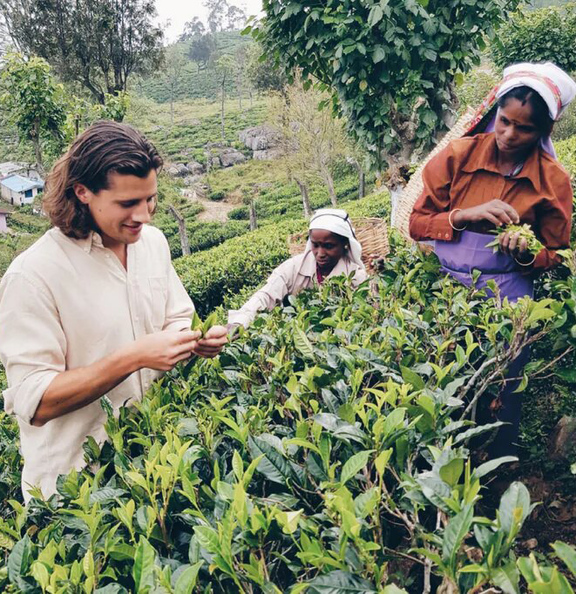
Q: For someone unfamiliar to Ayurvedic plants and herbs, how does it facilitate holistic wellness and how can we integrate its traditions and wisdom into our lifestyles today?
Zoe: Holistic health and wellness take into account every aspect of our lives when it comes to feeling good. It sees you as whole: mind, body, and soul. This approach originates from the earliest texts in our medical history, principally from Ayurveda, which is renowned to be the world's oldest medical system. While our modern scientific approach uses empirical data to validate efficacy and risk, countless anecdotal and real-life experiences have shaped the understanding of holistic wellbeing through a deep connection to the earth and the herbs that we can work with safely and effectively. It's this connection that has, to an extent, been sidelined today.
These traditional, holistic approaches look at the root cause, whether from the body, mind, or soul, and seek to adjust a way of life to remediate the ailment with the help of herbs but also lifestyle changes. In contrast, our modern medical system looks to resolve issues as they arise without the support to understand the cause in much detail--think Ibuprofen for a headache, or aspirin for blood pressure. The herbs and plants that can be used will vary according to your specific needs and desires too, having considered your lifestyle and what needs to be balanced or adjusted to feel better.
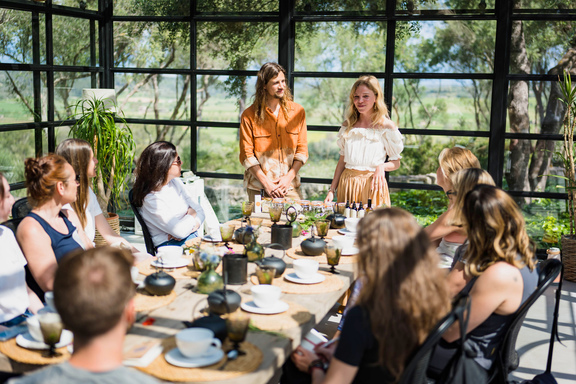
Q: Why is the relationship we share between the environment, farmer and consumer so important, especially when it comes to consuming nutrients and minerals to maintain health and wellness?
Zoe: As I mentioned earlier, the importance of knowing the origin of things that we consume in any way or form was always essential to me. During my International Relations Master’s degree, 11 years ago, I focused on climate change and food security to further understand our impact on this planet from our behaviours and patterns of consumption. So, by sourcing from only regenerative farms and small communities, we hope to support a way of life that is beyond sustainability—by regenerating depleted soils and supporting the creation of biodiverse food forests. These concepts are part of indigenous knowledge and are not new creations. We think it is important to celebrate the wisdom keepers of nature and see it as a reminder that we are one with nature.
Hence, it’s essential for us to consider every element of the supply chain, from soil to consumer. Especially since pesticide-free and non-mono-cultural farming is hugely important for combating climate change, creating soil health, biodiversity, and future food security. 4,000 years ago, Sanskrit scripts already said that if our soil is dead, we will also not survive. Farming in the most environmentally supportive way possible is essential to sequester carbon and create nutritious food for all living beings. For us, we cannot sell health products without putting the health of the planet at the forefront of our sourcing.
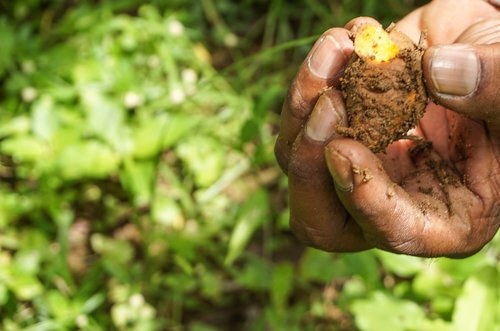
Q: You mention that herbs and our connection to it and the earth can facilitate optimal wellbeing because in Ayurveda, we are seen as one. What factors are you referring to that is embedded in our everyday environments and is also causing us to lose a sense of self?
Zoe: The choices that we make each day impact our health now and in the future. Each meal should be an opportunity to nourish and preserve your body. That body should be tested with physical and mental activities to keep it in action too. A preventative approach to health is being mindful of the gift that our lives are and the body we have to enjoy them.
There is no escaping our mortality. Life simply wouldn't be the same without this looming presence. However, if we understand what makes us feel good and lead longer, healthier lives, then we should be encouraged to do these things. There are many herbs and fungi that enrich our diet with beneficial polyphenols, terpenes, and polysaccharides to support our bodies. Those that are particularly high in certain compounds have been classified to have this medicinal quality and can be used to support your health and prevent illness in the long and short term.
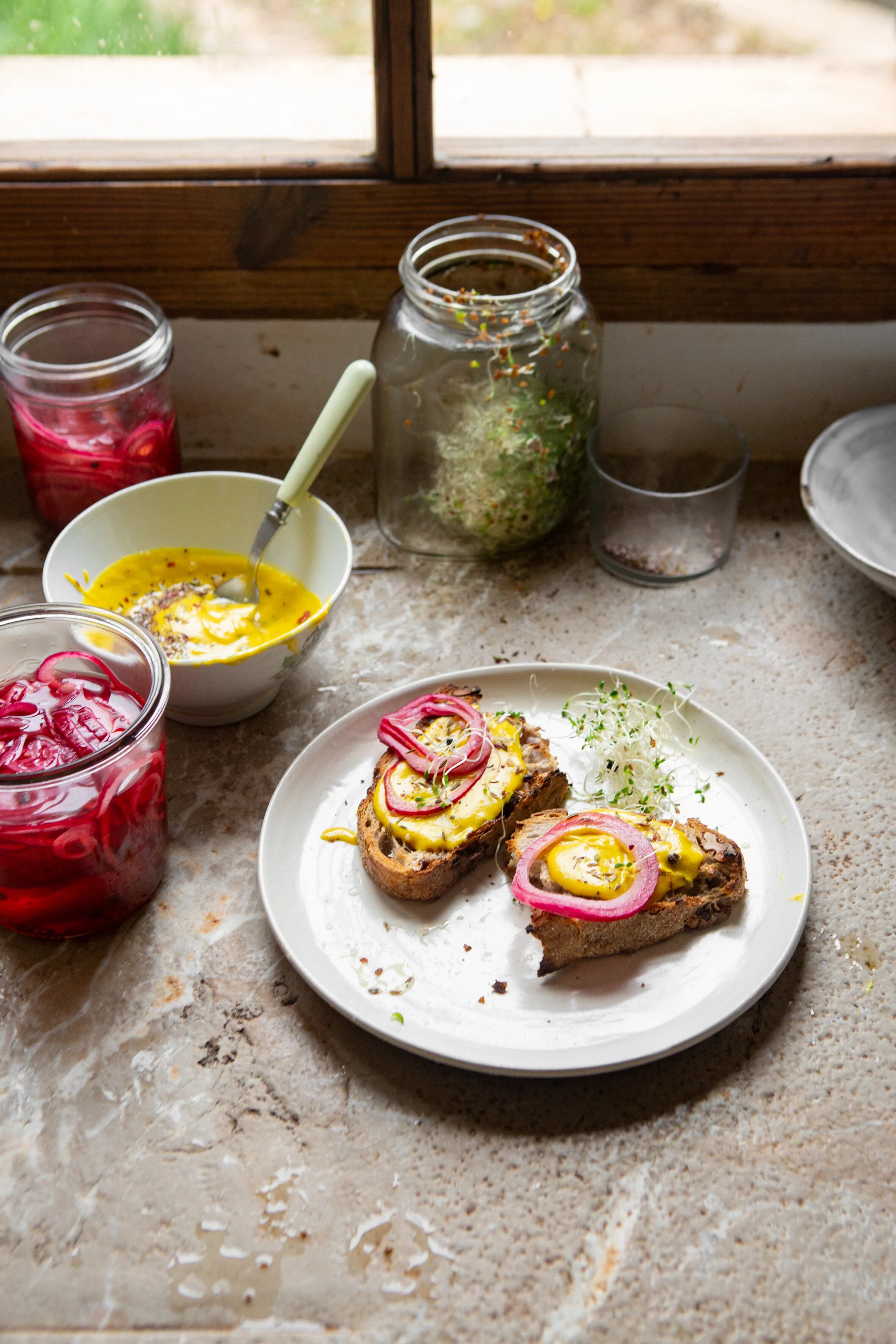
Q: What are your top go-to herbs or plants for each season and why?
Zoe: Oh, that’s a difficult one. I adore so many herbs, plants, and mushrooms, but I would say the following are definitely part of a more seasonal routine:
- Spring: wild foraged nettle as an all-round strengthening tonic herb; cordyceps and reishi to strengthen our defence against pollen; burdock root and dandelion tincture to cleanse our liver, which aligns with a spring cleanse.
- Summer: Chaga to support our skin from too much sun exposure; aloe vera for its cooling qualities for the skin and our bowels. Wild foraged berries in all their shapes and forms are known for their antioxidants and sweetness.
- Autumn: Elderberries and Rock Rose for their assistance with seasonal change.
- Winter: Turmeric and ginger for everything. They are such beautiful warming spices for long, cold winters.
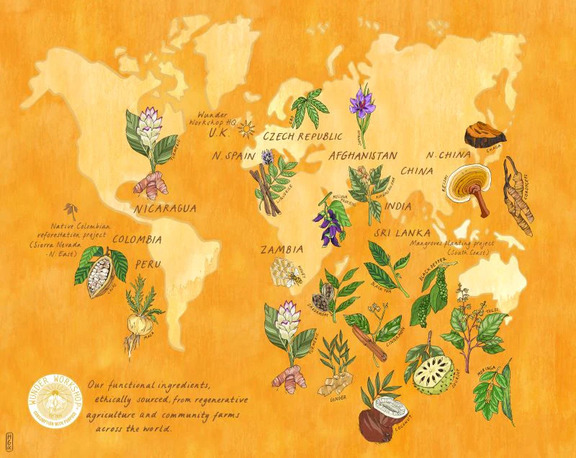
Q: Do you have a favourite way of using said herbs, either in a recipe or regimen?
Zoe: It really depends on the time and creativity we feel throughout the day, but we usually love consuming them in potions, hot teas and tinctures. The chaga makes a delicious lemonade; the cordyceps and reishi mushrooms can be included in cacao smoothies; stinging nettle is great as tea or as a soup even.
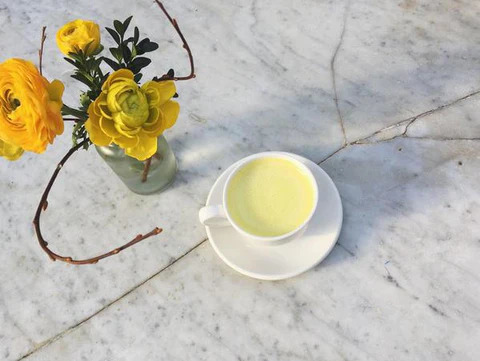
Q: Given the wide array of herbs and plants mentioned and available, are there superior methods of consuming them? Dried vs. fresh vs. in teas vs. aromatherapy?
Zoe: It can depend widely on the plant itself; some are more bioavailable when extracted either through alcohol or water (such as mushrooms), some are better absorbed in combination with fat and heat (such as turmeric). Leafy herbs such as nettle, tulsi, moringa etc. can be enjoyed dried and infused in warm water to absorb their qualities, or if we have access to them to do so when they are still fresh.
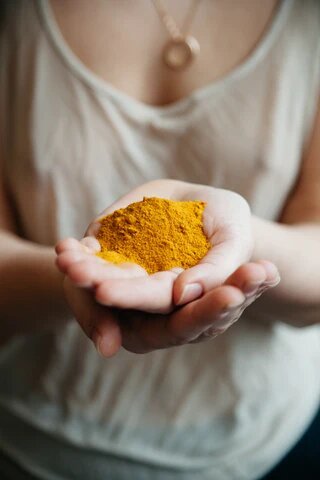
Q: Any non-negotiable daily health and wellness rituals?
Zoe: My rituals flow and are not rigid, so some weeks I like to start the day with breath work and journaling, other days with dancing or going for a swim. All in all, I like to tune in to see what is required and honour that.
But all in all, I could not live without nature, herbal potions, mindful moments, and checking in with myself to see what is bothering me or what is causing me not to be in my optimal state.

Join Tom and Zoe on the Elevate and Nourish Mallorca Retreat in 2023.
Sign up to our newsletter for exclusive retreat launches, priority access to events and curated wellbeing content